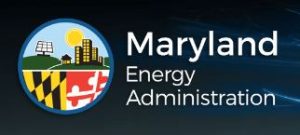
Incentives help install systems to provide emergency services and power critical buildings during outages, also fuel jobs training throughout state
Baltimore, MD – The Maryland Energy Administration (MEA) today opened the fiscal year 2024 (FY24) funding round for its award-winning Resilient Maryland Program, which provides grants to Maryland communities and organizations to help with the costs of planning and installing energy systems like microgrids, resilient facility power systems and resiliency hubs. These systems are designed to generate and manage clean and reliable energy for essential buildings, infrastructure, processes and services that are important for communities to function through power outage events and emergency situations.
“Resilient Maryland strengthens the fabric of our communities and the safety net that undergirds our response to emergencies. In addition to providing a major boost to Maryland’s emergency response capabilities, the program also has created 40,000 job hours over 40 projects, making it a significant economic driver throughout the state,” said Maryland Energy Administration Director Paul G. Pinsky. “By being there for Marylanders during the worst of times, Resilient Maryland provides a critical boost to our communities when it is needed most.”
Microgrids, resilient facility power systems and resiliency hubs can provide reliable energy generated from clean and sustainable sources, such as solar panels, battery energy storage systems or small land-based wind turbines, in both normal and electricity grid outage situations. They combine several different distributed energy resources with smart control systems and software so that the resilient energy system is able to quickly resume or seamlessly continue providing power to essential facility loads, such as emergency lighting, HVAC, and life support systems after a power outage.
Developing and installing these energy systems requires cross-industry collaboration between key project stakeholders, developers, installers and local utilities. Microgrids, resilient facility power systems, and resiliency hubs incorporate expertise from many parts of the energy industry and other industries, such as information technology, cybersecurity and supply chain management. With the demand for clean, sustainable, resilient energy solutions expected to increase substantially, the development and installation of these systems will require the expertise and skilled labor of many Marylanders from many different disciplines.
Several Resilient Maryland grantees, including the University of Maryland, Bowie State University, Frostburg State University and the Allegany College of Maryland have taken a proactive approach to educating, training and preparing their students in clean energy careers by directly involving them in the development of their Resilient Maryland-funded microgrids to support their campuses and surrounding communities. The preparation provides students with hands-on, real-world experience that contributes to realized projects that bring benefit to some of Maryland’s most vulnerable, underserved, and overburdened communities.
Resilient Maryland grants can help optimize the cost and sustainability of the energy flows between the resilient energy system and the larger electricity grid during non-outage conditions so that consumers maximize their greenhouse gas reductions while minimizing their energy cost. They also can be configured to provide support services to the larger electric grid, such as demand response and voltage and frequency regulation.
For more information, including program terms, conditions, and instructions on how to apply, visit the Resilient Maryland webpage.
The mission of the Maryland Energy Administration is to promote clean, affordable, reliable energy and energy-related greenhouse gas emission reductions to benefit Marylanders in a just and equitable manner. Visit our website at Energy.Maryland.gov to learn more about our programs and services, and follow us on social media to keep up with us: LinkedIn | Facebook | Twitter




